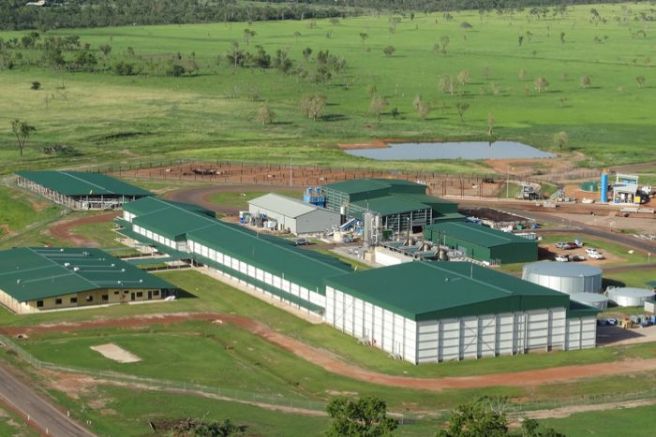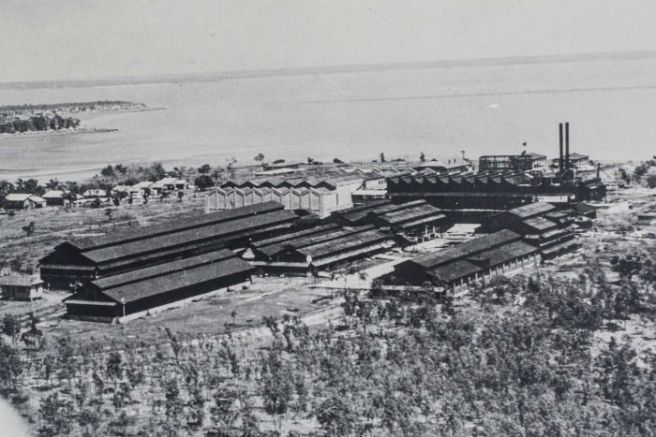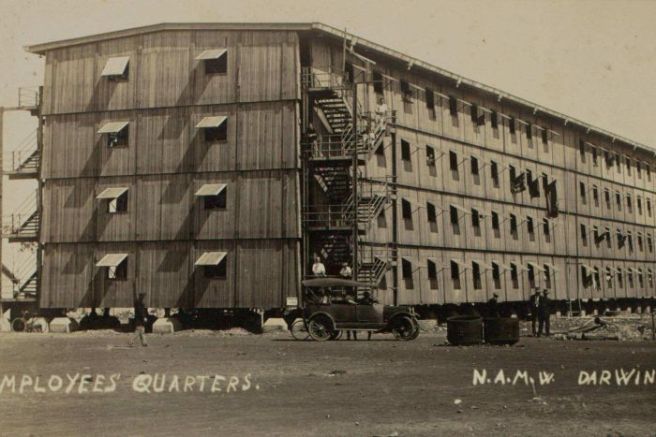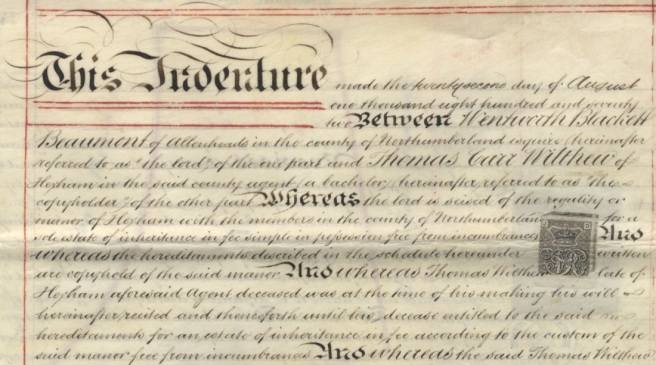ABC May 23 2018: Australia’s largest cattle company, Australian Agricultural  Company (AACo), has announced it will suspend operations at its abattoir outside of Darwin.
Company (AACo), has announced it will suspend operations at its abattoir outside of Darwin.
A review was launched into Livingstone Beef earlier this year after the company admitted the $100 million asset was under performing. The CEO said the decision had been made to mothball operations as soon as practical while “having regard to existing employee, customer and other operational commitments” it was likely to be suspended by September 30.

The facility, which has been running for three years, employs about 200 people. “There is obviously an impact on people. My absolute focus now is on them and ensuring that we do the right thing by them and helping them through what’s going to be a difficult transition. The mood is very sombre. We have a lot of very good people there that invested a huge amount of time in making the plant a success and it’s extremely sad and painful that we’ve had to make this decision” he said, while some employees would be redeployed elsewhere, many would be made redundant in coming months. “Unfortunately there’ll be an impact on employment and we’ll be making people redundant as we move through the close down,” he said.
In a statement to the ASX, AACo said the total one-off write-down of $75 million including a one-off impairment of $69.5 million with respect to buildings, improvements, plant and equipment and an additional $5.4 million contract provision contract. AACo said the facility will be maintained at a level that would allow processing to restart should market conditions improve, while keeping costs to a minimum. The statement reiterated that the company could still be profitable under the right circumstances. AACo believes there is substantial value in Livingstone Beef, the statement said. In the right market environment, and with the right operating model, Livingstone Beef can be a profitable operation with significant strategic value. Despite high cattle prices over the last 12 months Australia’s biggest beef producer has gone from a $133 million profit last year to loss of $35 million. Simple arithmetic suggests that if a company writes off $75 million and shows a loss of only $35 million, it was in fact profitable.

Is it merely coincidence that nearly 100 years ago another multinational was in a similar situation? Vestey’s had invested £1M to build a meat works at Bullocky Point [where Darwin High now stands] effectively ensuring that no-one else could compete with them in Australia. Vestey’s owned a South African operation which was extremely profitable [they used black slave labour], more profitable than the Australian operation would ever have been, and a powerful competitor to Australian product in England. But Vestey’s didn’t want to turn down the offer by government to build the Darwin abattoir, because someone else would have and thus created competition. In addition Vestey’s had a divested a large proportion of their assets in American Meat Trust for taxation purposes. They probably needed to offset a capital gains tax liability; sound familiar?
Vestey’s owned Wave Hill station [best known for the Gurindji strike, referring to the walk-off and strike by 200 Gurindji stockmen, house servants and their families in August 1966. The strike lasted until 1975 when the federal government finally negotiated with Vesteys to give the Gurindji back a portion of their land, a landmark in the land rights movement in Australia. Vestey Group sold its Australian pastoral holdings in early 1992] but supply of stock was insufficient. Turnover was restricted to animals 4 years and older, consequently Vestey’s herd was only capable of supplying 60% of the Darwin plant operation. Quality of the stock was unsatisfactory and the immediate area around the hinterland unsuitable for stocking animals. Vestey’s requested government assistance due to higher costs of construction materials, high labour costs [largely Greeks fleeing the Balkan wars] and therefore higher treatment costs. They also demanded long-term rail freight agreements, reduced wharfage rates and bores on their properties and a £2 head killing subsidy. Some of the Greeks stayed, creating the foundations of the families that built the pearling, mining and property empires of today, but for most the effect on Darwin and its narrow economic base was calamitous.
“Five or six hundred unemployed were walking the streets, and in spite of every effort made by the Federal Government, no vessels could be procured for nearly two months to take them away to some place where work might be obtained. As it was impossible to find work locally for the large number of unemployed, many of whom were without any means, the Government was forced to the alternative of either granting to these free rations or free steerage fares to some other part of Australia. The latter was the lesser of the two evils, both from the point of view of the men and the Government. In all 216 free passages were granted, principally to Greek, Patagonian and Spanish immigrants who had been attracted to Darwin in previous years…”
During 1919 the weather caused a short operating season and union disputes caused problems. Stop work meetings protested at an increase in the price of bottled beer and other pastoralists stopped sending cattle to the abattoir. A letter had been published outlining among other things a plot to derive another large pastoral company of its stations. John Carey, Director of Agriculture and Acting Administrator of NT took on the job as chief clerk in the packing plant. Carey wrote to Vestey’s;
“..that the lease of a large pastoral holding with hundreds of thousands of head of cattle on it would expire shortly. The administrator could refuse renewal and grant it to Vestey’s, but it would be necessary to pay him £20,000 to use as graft for officials and parliament for this purpose.”
Community unrest was extremely high, sparking the Darwin Rebellion where 1,000 demonstrators marched on Darwin parliament house. It was culmination of unrest in the Australian Workers’ Union existing between 1911 and early 1919. Led by Harold Nelson, demonstrators marched on Government House at Liberty Square in Darwin where they burnt an effigy of the Administrator John Gilruth, and demanded his resignation. Gilruth and his family left Darwin soon afterwards under the protection of HMAS Encounter, while the Vestey company permanently closed its Darwin operations in 1920. The event was described as the nearest thing to a revolution since the Eureka Stockade at Ballarat in 1854.

Strikes occurred over accommodation, there was a severe housing shortage in Darwin and therefore administrator waived health regulations and allowed workers to live in camps and tents. Vestey’s tried to meet the demands of the unions and control situation by paying inflated wages, living allowances and travel costs to and from southern states for seasonal workers, the first FIFO workers! The Unions justified actions – AWU Darwin Branch Secretary – Harold Nelson said,
“In the past capitalists have stolen from the workers and now the workers propose taking back the spoils. Anything wrong with that?”
The quote by Sir Edmund Vestry “..it was more profitable to let the cattle die on the stations than to put them through the Port Darwin works”, was a standard response for the times.
A Telegram from the Minister for Territories ran:
“Conacher, meat company states only reason for not operating this season is the government can not give a guarantee regarding shipping to bring coal and supplies and necessary labour. As 95% of settler population is dependent on the meat industry, therefore strongly appeal to the Government for consideration as regards our quota of shipping”.
The CommonwealthGovernment wasn’t in a position to guarantee the 10,000 tonnes of coal required to operate the works and it failed to build railway between Alice to Darwin to bring in cattle which meant the works couldn’t operate profitably and allowed Vestey’s to send their cattle to QLD abattoirs.
Back to the present and for the Murphy family at Kalala Station near Daly Waters, the closing of the AACo works means they’ll have to find another market for their cull cows and bulls. It will also mean less work for the family’s trucking business which delivered a lot of cattle. Amanda Murphy said she was shocked and disappointed when she heard the news. “A lot of pastoralists and property owners are going to feel it, and unfortunately now there’s going to be some old cows and old bulls running around the paddocks that have nowhere to go,” Ms Murphy said. “I think a lot of people are going to be a bit stuck with where to go next as a lot of those cattle can’t travel”. She hoped in the future it may start up again, either under the same operator or a new one, and offer more competitive prices. “I think that’s one thing a lot of people would say — they couldn’t meet the market with the prices they were giving for cattle which is why a lot of people weren’t actually going there,” she said. But she said the suspension of the abattoir was not representative of the NT cattle industry as a whole, which she said remained “very strong”.
Founded in 1824 by an Act of the British Parliament, with the rights to 4000 sq km in NSW for agricultural development, AACo is one of Australia’s oldest companies to take advantage of the state ceding valuable land to business for free. Amongst its principal members were the Attorney-General and the Solicitor-General of England, 28 Members of Parliament, the Governor, Deputy Governor and eight of the directors of the Bank of England; the Chairman and Deputy-Chairman and five directors of the British East India Company, besides many other eminent bankers and merchants of England, all with their snouts deep in the trough.

Convicts soon became the company’s largest type of employee, although those who had served a sentence, aborigines and indentured servants on seven-year contracts were also employed with the latter making up the bulk of initial employees. The employer purchased the indenture from the sea captain who brought the individual to the New World. Both sides were legally obligated to meet the terms, which were enforced by local courts, their contracts were bought and sold repeatedly and some never attained their freedom; they were little more than slaves.
So the company has a long history of manipulating markets and taking advantage of tax loopholes and labour laws and when it said that it’s earnings were impacted by a number of factors including “increased competition affecting certain parts of the product portfolio, reduced volumes due to less reliance on external supply, and increased input costs driven by dry weather conditions”, it all sounds exactly like the bullshit [pun intended] that Vestey’s were spouting 100 years ago.